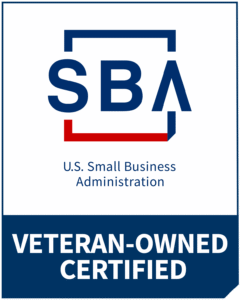The U.S. government represents a massive market for goods and services, spending hundreds of billions of dollars annually. Dedicated programs and set-asides help small businesses in specific categories—such as Veteran-Owned Small Businesses (VOSB), Woman-Owned Small Businesses (WOSB), Service-Disabled Veteran-Owned Small Businesses (SDVOSB), and Small Disadvantaged Businesses (SDB)—secure a piece of this lucrative pie.
However, breaking into government contracting can seem daunting. This comprehensive guide aims to demystify the process, outlining everything you need to know to leverage your “special interest group” status and successfully navigate the world of government contracts. We’ll cover the basics, delve into certifications, explore finding opportunities, and unravel the intricacies of teaming, joint ventures, and mentor-protégé programs.
Understanding Your Advantage: Leveraging Your Special Interest Group Status
Your designation as a VOSB, WOSB, SDVOSB, or SDB (among others) unlocks access to specific government programs designed to level the playing field. These programs often include:
- Set-Aside Contracts: Agencies are required to dedicate a percentage of their contracting dollars to specific socio-economic groups. This means contracts are exclusively competed among businesses within your designated category, significantly reducing the competition.
- Sole-Source Contracts: In some cases, agencies can award contracts directly to eligible businesses without competitive bidding, provided specific criteria are met. This is a valuable opportunity, particularly for highly specialized services.
- Price Evaluation Preferences: Even when competing against larger businesses, your status might give you an advantage in price evaluation. Agencies may offer price credits or other adjustments to favor businesses in your category.
- Increased Access to Resources: The SBA and other government agencies offer tailored training, counseling, and resources specifically designed to help businesses in your category succeed in government contracting.
Step 1: Unlocking Advantages for Small Businesses Through Certification
Before you can fully leverage these advantages, you likely need to obtain certification. Certification validates your eligibility for set-aside contracts and other preference programs. The specific requirements and processes vary depending on your category.
Veteran-Owned Small Businesses (VOSB) & Service-Disabled Veteran-Owned Small Businesses (SDVOSB)
Overview
Previously, the Department of Veterans Affairs (VA) administered the Verification Program (VetBiz.VA.gov) under the “Rule of Two,” prioritizing contracts for VOSBs and SDVOSBs. While this program remains crucial for VA contracts, significant changes have occurred in the certification landscape.
Current Certification Process
Currently, the SBA serves as the primary certifier for VOSB and SDVOSB status for most federal contracts. They offer a self-certification process for small businesses listed in the System for Award Management (SAM.gov), but formal certification is often highly recommended. This provides an added layer of credibility, ensuring you meet all eligibility requirements. The VA’s VetBiz program remains important for VA-specific contracts.
Key Considerations
Ownership and control are paramount. Veterans (or service-disabled veterans) must own at least 51% of the business and control its daily operations. They also must hold the highest officer position (e.g., CEO, President).
Where to Certify
Begin by visiting the SBA website to research their Veteran Small Business Certification program. For VA-specific opportunities, continue to utilize VetBiz.VA.gov.
Woman-Owned Small Businesses (WOSB) & Economically Disadvantaged Woman-Owned Small Businesses (EDWOSB)
Certification Process
The SBA allows self-certification or certification through a third-party organization approved by the SBA. Approved third-party certifiers provide a more rigorous verification process, enhancing your credibility.
Eligibility Requirements
At least 51% of the business must be owned and controlled by one or more women. The “economically disadvantaged” designation requires meeting specific financial criteria related to personal net worth, income, and assets.
Where to Certify
Refer to the SBA website for the list of approved third-party certifying organizations. If you are self-certifying, ensure that you understand and meet all the eligibility requirements.
Small Disadvantaged Businesses (SDB)
8(a) Business Development Program
This is the primary pathway to SDB certification. It’s a comprehensive nine-year program designed to help disadvantaged businesses grow and compete in the federal marketplace.
Eligibility Requirements
Ownership and control must be held by individuals who are socially and economically disadvantaged. This typically includes individuals from minority groups and others who have historically faced discrimination. Specific financial eligibility requirements also apply.
Benefits
Participation in the 8(a) program unlocks access to exclusive set-aside contracts, mentoring opportunities, and business development assistance.
Where to Apply
Applications are submitted through the SBA website. The application process is rigorous and requires significant documentation.
Step 2: Finding Government Contracting Opportunities
Once you’re certified (or while you’re in the process), it’s time to start searching for relevant opportunities.
- SAM.gov (System for Award Management): This is the official U.S. government website where agencies post solicitations (requests for proposals, requests for quotations, etc.). Create a free account, set up saved searches using relevant keywords (NAICS codes, products/services, agency names), and receive daily email alerts. Pay close attention to the set-aside designations (e.g., “SDVOSB Set-Aside,” “WOSB Set-Aside”).
- SBA Subcontracting Network (Sub-Net): This database lists subcontracting opportunities with prime contractors. Prime contractors often have goals for subcontracting with small businesses, making this a valuable resource.
- Agency Forecasts: Many government agencies publish forecasts of their upcoming contracting needs. Review these forecasts to identify potential opportunities well in advance.
- Networking: Attend industry conferences, trade shows, and government procurement events—network with contracting officers and other government personnel to learn about upcoming opportunities and build relationships. The SBA offers matchmaking events that connect small businesses with government agencies and prime contractors.
- PTACs (Procurement Technical Assistance Centers): These centers, located throughout the country, provide free or low-cost assistance to businesses seeking to enter the government contracting market. They can help with market research, proposal writing, and navigating the contracting process.
Step 3. Understanding Teaming, Joint Ventures, and Mentor-Protégé Programs
These strategic partnerships can significantly enhance your ability to compete for and win government contracts, particularly those for larger or more complex projects.
Teaming Agreements
Definition
A teaming agreement is a legal contract between two or more companies that outlines how they will collaborate to pursue a specific government contract opportunity.
Purpose
The purpose of a teaming agreement is to combine complementary skills, resources, and experience to create a more competitive bid.
Key Elements
Key elements of a teaming agreement include clearly defined roles and responsibilities, workshare distribution, exclusivity provisions, and intellectual property ownership.
Benefits for Special Interest Group Businesses
Teaming can allow you to bid on contracts you wouldn’t be able to handle alone, leverage the experience of a larger company, and gain valuable experience.
Joint Ventures
Definition
A joint venture is a legal entity formed by two or more companies for a specific purpose, typically to pursue a particular government contract or series of contracts.
Purpose
The purpose of a joint venture is to create a new entity with combined resources, expertise, and financial capabilities.
Key Considerations
Joint ventures must be carefully structured to comply with SBA regulations and ensure eligibility for set-aside contracts. The “ostensible subcontractor rule” is fundamental; the non-small business cannot exert too much control over the joint venture.
Benefits for Special Interest Group Businesses
Joint ventures can provide access to capital, bonding capacity, and technical expertise that may otherwise be unavailable.
Mentor-Protégé Programs
Definition
Mentor-protégé programs are formal initiatives offered by government agencies (e.g., SBA, DOD, VA) that pair larger, established companies (mentors) with smaller businesses (protégés) to provide guidance and support in areas such as business development, technical assistance, and management skills development.
Purpose
The purpose of these programs is to help protégé firms develop their capabilities and compete for government contracts.
Key Benefits
Protégés receive valuable mentoring, training, and potential access to subcontracting opportunities with the mentor firm. Mentors often receive credit towards meeting their small business subcontracting goals. In some cases, mentor-protégé relationships can qualify for exceptions to affiliation rules, allowing joint bidding on contracts that might otherwise be off-limits.
How to Participate
Research the mentor-protégé programs offered by various agencies. Match your needs and goals with the expertise and resources provided by potential mentor firms. Apply to the program and carefully craft a mentor-protégé agreement outlining the specific goals and activities of the relationship. The SBA’s All Small Mentor-Protégé Program is a good starting point.
Important Considerations and Best Practices:
- Compliance: Government contracting is heavily regulated. Ensure you understand and comply with all applicable laws and regulations, including the Federal Acquisition Regulation (FAR).
- Due Diligence: Thoroughly research any potential teaming partners, joint venture partners, or mentor firms.
- Proposal Writing: Craft compelling and compliant proposals that clearly articulate your qualifications and demonstrate your understanding of the government’s requirements. Seek assistance from a proposal writing consultant if needed.
- Financial Management: Maintain accurate financial records and ensure you have adequate working capital to support your government contracting activities.
- Cybersecurity: Increasingly, government contracts require contractors to meet specific cybersecurity standards. Implement appropriate security measures to protect sensitive information.
- Stay Informed: Government contracting rules and regulations are constantly evolving. Stay informed about the latest changes by subscribing to industry publications, attending training sessions, and maintaining relationships with government contracting experts.
Conclusion:
Leveraging your status as a “special interest group” can provide a significant advantage in the government contracting market. By understanding the certification processes, actively searching for opportunities, and exploring strategic partnerships, you can significantly increase your chances of success. Remember to prioritize compliance, seek expert guidance when needed, and continuously improve your capabilities to compete effectively. With dedication and strategic planning, your small business can thrive in the world of government contracting. Good luck!

